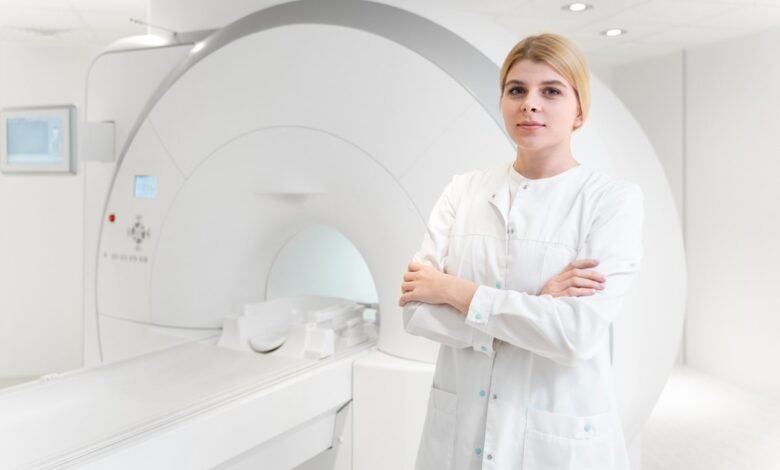How to Prepare for Radiation Therapy

Radiation therapy is a crucial medical treatment used to combat various forms of cancer. It employs high-energy rays or particles to destroy cancer cells and shrink tumors. If you or a loved one is about to undergo radiation therapy, it’s natural to have concerns and questions about what to expect. This comprehensive guide will walk you through the essential steps to prepare for radiation therapy, ensuring you are well-informed and ready for this important medical procedure.
Prepare for Radiation Therapy
Before delving into the preparations, let’s begin by understanding what radiation therapy is and how it works. This foundational knowledge will help you grasp the importance of the preparation steps.
Radiation therapy involves using X-rays, gamma rays, or charged particles, such as protons, to target and damage cancer cells. It can be used as the primary treatment or in combination with other therapies like surgery or chemotherapy. The goal is to eliminate or control cancer while minimizing damage to healthy tissue.
Consultation with Your Oncologist
Prepare for Radiation Therapy: The journey begins with a consultation with your oncologist. During this crucial meeting, your oncologist will discuss your treatment plan, including the type of radiation therapy, its duration, and potential side effects. Be prepared to ask questions and address any concerns you may have.
Read More: Breast Cancer Treatment Options: Surgery, Therapy, and Beyond
Planning and Simulation
Once radiation therapy is confirmed, you’ll undergo a planning and simulation session. This involves precise measurements and imaging to determine the exact location of the tumor and the optimal angles for radiation delivery. It’s a crucial step in ensuring the therapy is targeted and effective.
Discussing Side Effects
Radiation therapy can lead to various side effects, such as fatigue, skin changes, and nausea. Your healthcare team will discuss and provide strategies for managing these potential side effects. It’s essential to understand what to expect and how to alleviate discomfort.
Preparing for Radiation Therapy
Prepare for Radiation Therapy: With a basic understanding of radiation therapy, let’s move on to the essential preparations.
Maintain a Healthy Lifestyle
Leading up to your radiation therapy, focus on maintaining a healthy lifestyle. Eat a balanced diet, stay hydrated, and engage in light physical activity if possible. A well-nourished body is better equipped to handle the treatment and recover.
Arrange Transportation
Prepare for Radiation Therapy: Radiation therapy sessions are typically daily, spanning several weeks. Arrange reliable transportation to and from the treatment center, as you may experience fatigue or discomfort after the sessions.
Clothing Choices
During radiation therapy, it’s essential to wear loose-fitting, comfortable clothing. Avoid clothes with tight elastic bands or seams that may irritate the treated area.
Skincare
Your healthcare team will provide specific instructions on skincare during radiation therapy. Following their guidance is crucial to minimize skin reactions in the treated area.
The Day of Radiation Therapy
Prepare for Radiation Therapy: The day of your first session is pivotal in your treatment journey. Being well-prepared and knowing what to expect can help alleviate anxiety. Here’s what you should keep in mind:
Arrival Time
Arrive at the treatment center with ample time before your scheduled session. This extra time allows you to complete the necessary paperwork and mentally prepare for the procedure. Being punctual ensures your treatment stays on schedule, benefiting you and other patients.
Empty Stomach
Depending on the treatment area, you may be required to have an empty stomach. Follow the fasting instructions provided by your healthcare team diligently. This step is crucial to ensure radiation therapy is as effective as possible.
Wear Comfortable Attire
On the day of therapy, wear the comfortable clothing you chose for your treatment sessions. Remove any jewelry, watches, or accessories from the treatment area, as they can interfere with the procedure and might need to be temporarily removed.
Checking In
Upon arrival, check in with the receptionist or the healthcare team. They will confirm your identity and treatment details. This is also an opportunity to ask last-minute questions or discuss concerns.
Pre-Session Consultation
Before the radiation therapy session begins, you will likely have a brief consultation with your radiation therapist or oncologist. They will review your treatment plan, address immediate concerns, and ensure you are physically and mentally prepared for the session.
Entering the Treatment Room
Prepare for Radiation Therapy: You’ll be guided into the treatment room once you’re ready. Radiation therapists will position you carefully on the treatment table, using the measurements and angles determined during the planning and simulation session. They will take all necessary precautions to ensure your comfort and safety.
Staying Still
During the radiation therapy session, remaining as still as possible is essential. Any movement can affect the accuracy of radiation delivery. Depending on your treatment plan, you might be asked to hold your breath or adopt a specific posture.
Duration
Radiation therapy sessions are relatively short, usually lasting only a few minutes. However, the overall duration of treatment may span several weeks, with daily sessions from Monday to Friday. Your healthcare team will provide you with a clear schedule.
Post-Session Care
After the session, you will be helped off the treatment table, and any necessary post-session care will be administered. This may include applying soothing creams or addressing any immediate side effects.
During Radiation Therapy
Prepare for Radiation Therapy: Understanding what to expect during the therapy sessions can help ease anxiety.
Stay Still
During radiation therapy, it’s essential to remain as still as possible. This ensures accurate delivery of radiation to the intended area.
Duration
Radiation therapy sessions are relatively short, usually lasting only a few minutes. However, the overall duration of treatment may span several weeks.
Relaxation Techniques
Consider practicing relaxation techniques like deep breathing to stay calm during the procedure. Some treatment centers may offer music or guided imagery to help you relax.
After Radiation Therapy
Prepare for Radiation Therapy: The journey continues after each session. Here’s what to expect after radiation therapy.
Rest and Hydration
After each session, prioritize rest and hydration. Your body needs time to recover, and staying well-hydrated aids in the healing process.
Follow-Up Appointments
Your healthcare team will schedule follow-up appointments to monitor your progress and address concerns. Attending these appointments and communicating openly with your medical team is essential.
Emotional Support
Prepare for Radiation Therapy: Radiation therapy can be emotionally challenging. It’s perfectly normal to feel anxious or stressed about the upcoming sessions. Seeking emotional support from friends, family, or a therapist can be immensely helpful. Don’t hesitate to lean on your support network during this time.
Medication and Supplements
Prepare for Radiation Therapy: Discuss any medications or supplements you take with your healthcare team. Some substances can interact with radiation therapy or affect its efficacy. Your medical team will guide what’s safe to continue and what should be temporarily discontinued.
Managing Side Effects
Prepare for Radiation Therapy: As you progress through radiation therapy, you may experience side effects like fatigue, skin irritation, or changes in appetite. Your healthcare team will provide strategies to manage these side effects effectively. It’s essential to communicate any discomfort promptly so that adjustments can be made to your treatment plan.
Mental Preparation
Prepare for Radiation Therapy: Mental preparation is as vital as physical preparation. Visualize the positive outcomes of your therapy, focus on your strengths, and maintain a hopeful outlook. Some individuals find meditation and mindfulness exercises beneficial in reducing anxiety and enhancing mental well-being during treatment.
Celebrate Milestones
Prepare for Radiation Therapy: Each session brings you one step closer to recovery. Celebrate milestones, no matter how small they may seem. Acknowledging your progress can boost morale and keep you motivated throughout the treatment.
In conclusion, preparing for radiation therapy requires a comprehensive approach encompassing physical, emotional, and mental aspects. Following these steps and maintaining open communication with your healthcare team, you can embark on your treatment journey with confidence and resilience.
Read More: Gene Therapy for Cancer Treatment in 2023
Conclusion
Preparing for radiation therapy is a crucial part of your cancer treatment journey. By following these steps and staying informed, you can ensure that you are physically and mentally ready to face the challenges ahead. Remember that your healthcare team supports you every step of the way, so don’t hesitate to reach out with any questions or concerns.
From the initial consultation with your healthcare team to the actual day of radiation therapy, each step plays a vital role in ensuring your treatment’s effectiveness and overall well-being. Staying informed, asking questions, and seeking support when needed are essential.
As you progress through your radiation therapy sessions, remember you are not alone. Your healthcare team is there to provide guidance, address concerns, and monitor your progress. Your support network of friends and family can also offer emotional assistance during this challenging time.
FAQs
Is radiation therapy painful?
No, radiation therapy itself is painless. However, it may cause side effects that can vary from person to person.
Can I continue working during radiation therapy?
You can continue working depending on your energy levels and the type of work you do. It’s essential to discuss this with your healthcare team.
How long does each radiation therapy session last?
Typically, each session lasts a few minutes, but the overall duration of treatment varies depending on your specific case.
Are there any dietary restrictions during radiation therapy?
Your healthcare team will guide dietary restrictions, such as fasting before sessions if necessary.
Can I drive myself to radiation therapy sessions?
If you feel well enough, you can drive yourself. However, having a backup transportation plan is a good idea if you experience fatigue or discomfort.







